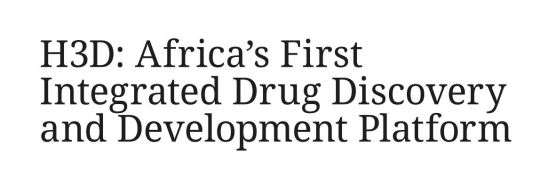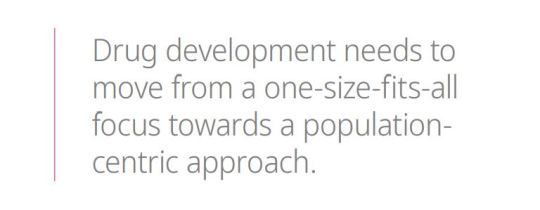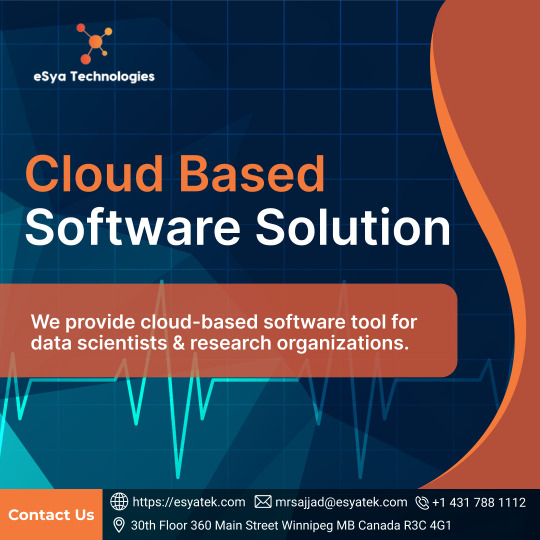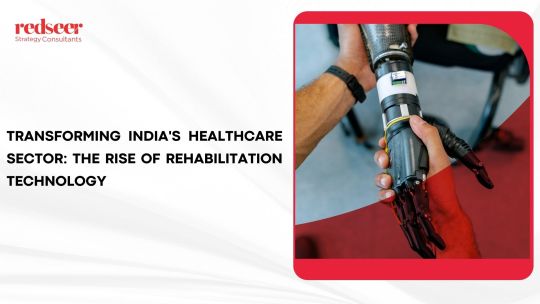#health sector
Quote
Public health expert Dr Antony KR said PPP in the health sector has often resulted in a loss to the government and taxpayers and has been beneficial to the private sector. “Very few philanthropic organisations and charitable trusts have sincerely collaborated with the government for the common good,” he said. “This PPP model of giving away district hospitals to private medical colleges should not end up in a similar fiasco.” Antony pointed out that the Chiranjeevi scheme in Gujarat – meant to give women from poor families access to institutional deliveries in private hospitals – had resulted in the weakening of well-utilised public health institutions in the Surat, Ahmedabad and Baroda regions. Also, the scheme had no takers for areas such as Kutch, which is poorly served by the government, he said. Similarly, when Chhattisgarh wanted to outsource diagnostic services in district hospitals, there were no bidders for the tribal divisions of Bastar and Sarguja. The private sector bid only for the Raipur and Bilaspur divisions, where they could make a profit, said Antony, who is an independent monitor for the Centre’s National Health Mission. Citing the example of Rishikesh in Uttarakhand, he stressed that private companies were reluctant to carry out public health programmes like immunisation, maternal and child health, and family planning in response to calls by the government, while being very keen on offering diagnostic services.
Sumi Sukanya Dutta, ‘Privatisation of district hospitals: Wheels set in motion in 5 states’, Moneycontrol
#Moneycontrol#Sumi Sukanya Dutta#India#Public health#Antony KR#PPP model#health sector#private sector#private medical colleges#Chiranjeevi scheme#Gujarat#Surat#Ahmedabad#Baroda#Kutch#Chhattisgarh#Bastar#Sarguja#Raipur#Bilaspur#National Health Mission#Rishikesh#Uttarakhand
5 notes
·
View notes
Text
Africaʼs First Integrated Drug Discovery and Development Platform.

Africaʼs first integrated drug discovery and development center. H3D was founded at UCT in April 2010 and focuses on translational medicine, which involves early-stage medicine discovery in the lab through to the treatment of patients in clinical settings. WIPO Magazine recently sat down with Chibale to learn more about H3D, and the role intellectual property plays in its groundbreaking work.
WM: What is the potential of drug discovery in Africa?
KC: Africa is arguably the most genetically diverse continent.
Everybody came from Africa and went somewhere else. That means diseases are not African problems or African diseases, they are human diseases, human problems. So, drug discovery in Africa has huge potential to contribute to humanity and to create local jobs.
And how is H3D affecting health innovation in Africa?
H3D is having an impact at various levels, particularly by creating drug discovery infrastructure and platforms capable of contributing to the global pipeline of innovative products that could be further developed. In other words, we have strengthened our capacity to translate basic science knowledge into potential life-saving medicines. And we are bridging the gap between the lab and the patient.
You focused initially on malaria. Why?
Malaria was an opportunity for us to build the infrastructure required for translational medicine. At the end of the day, beyond understanding the biology of the human malaria parasite, the drug discovery principles are the same for malaria or cancer. For example, regardless of the disease, among other things, the common goal is to understand how the human body will handle the drug candidate. The malaria project was an opportunity to work with the Medicines for Malaria Venture (MMV) and to subsequently engage with new partners, such as Merck and the Bill and Melinda Gates Foundation. Once we developed the infrastructure we needed for that project, we began adding other diseases, including tuberculosis (TB), and antimicrobial resistance. In 2022, we had an opportunity to work with Johnson & Johnson as one of the companyʼs three satellite centers for global health discovery. In sum, malaria was an anchor program that enabled us to acquire the skills and experience we wanted to develop, and which we then transferred to other diseases.
How important are such partnerships to H3Dʼs work, and to
developing a robust health innovation ecosystem in Africa?
Partnerships are extremely important, even for innovative pharmaceutical companies with financial muscle. Indeed, some of the product portfolios they offer include drug candidates licensed in from third parties. This enables them to de-risk the early stages of drug development. For H3D, partnerships were important from the start, for three reasons. First, to tackle infrastructure challenges; second, to build the technology platforms we needed; and third, to access skilled people. Partnerships are also important to secure funding. When you have a project with global support, you attract partners who share the same goals, funding grows, and you gain access to a network of centers of excellence. Partnerships can bring to the table what you donʼt have, because everyone is interested in the projectʼs success. When there is mutual interest, you can make a huge difference.
What about the importance of building a local procurement
support system?
One of the main barriers to scientific innovation in Africa has been a lack of infrastructure in the broad sense. This includes a local procurement support system with functioning laboratories, access to the spare parts you need when something breaks down, the ability to access reagents and chemicals readily and rapidly, and so on.
Of course, from a business perspective, we need scale that justifies the business. At present, there are too few players, so business opportunities are limited. Thatʼs why weʼre working to expand the community to create the demand that will foster the businesses we need to supply the chemicals and reagents required for research and development, for example.

What is the role of intellectual property in all this?
When thereʼs an unmet medical need, you have to innovate, and IP incentivizes innovation. IP is an enabler and underpins robust innovation ecosystems. Cash-strapped universities can use IP to generate new sources of income from their research, through university spinouts, for example. IP is also a magnet for investment. People want to invest in a country where there is respect for rules and laws, including IP.
Do you still need IP in Africa for infectious diseases, where
commercial returns are low?
Absolutely. Because IP is also a responsibility, even for infectious diseases where commercial returns are perceived to be low. Without IP you would have a free-for-all. When it comes to health equity, itʼs important to remember that the person who owns the IP can decide whether to share it voluntarily or not.When you hold IP rights in a medicine, you can control its use to some extent. Thatʼs why, in Africa, we need to be owning IP. When we do, and we find an appropriate partner to take the IP forward, we get a return. I would rather own 1% of one billion than 99.99% of zero.
IP is also a responsibility, even for infectious diseases where commercial returns are perceived to be low.
What is the current focus of H3Dʼs work?
In terms of drug discovery, weʼre focusing on action studies to identify biological targets and to better understand the mechanism of resistance of these targeted organisms to drugs. These organisms are very clever. Our job is to outsmart them.
Do you still see the need for new approaches?
Yes. At a scientific level, Iʼm an advocate for Afro-centric drug discovery. You need to find a target to hit – an enzyme or a protein – which may respond differently in different populations for genetic reasons.

Genetic differences in the expression and activity of drug-metabolizing
enzymes can lead to variable responses to therapeutics. For example, in people of African descent, due to genetic mutations, enzymes responsible for metabolizing the antiretroviral drug Efavirenz work more slowly than in other populations and this can result in toxicity, even death, due to drug overdose if dosages arenʼt adjusted appropriately. So, drug development needs to move from a one-size-fits-all focus toward a population-centric approach.
We really need to invest in understanding the genetics of the African
population with respect to biological drug targets we go after and the
enzymes responsible for metabolizing specific drugs. Also, we need to address the funding gap in translational medicine, which
many investors find too risky. This will require policy changes to encourage investors to see drug development as a continuum that requires investment at each stage of the value chain. This would create opportunities to share both risks and benefits, and ultimately will benefit everyone.
Read the full interview online and learn more about Chibaleʼs recommendations for developing a robust health innovation system in Africa.

#medicine discovery#intellectual property#health sector#drug discovery#health innovation#26 april#worldipday#pharmaceutical#drug development#sdg3#ip and the sdgs
0 notes
Text
Revolutionizing Healthcare: Cloud Computing Services to Health Sector by Esya Technologies in Canada

Advantages of Cloud Computing in Healthcare
Cloud computing has revolutionized the way data is stored and accessed across various industries, and healthcare is no exception. The advantages of cloud computing in healthcare are manifold, offering a range of benefits for both healthcare providers and patients.
First and foremost, cloud computing provides increased accessibility to patient data. Traditionally, healthcare organizations relied on physical records and disparate systems, making it challenging to access and share patient information. With cloud computing, healthcare professionals can securely access patient data anytime, anywhere, enabling more efficient and coordinated care.
Furthermore, cloud computing enhances interoperability between healthcare providers. By storing patient data in the cloud, different healthcare organizations can seamlessly share information, leading to improved care coordination and reducing the risk of medical errors. This interoperability also facilitates the integration of various health technologies, such as telemedicine and remote monitoring, enabling better patient outcomes.
Lastly, cloud computing offers enhanced data analytics capabilities. The vast amounts of data generated in the healthcare industry can be analyzed and leveraged to drive insights and improve decision-making. With cloud-based analytics tools, healthcare organizations can uncover patterns, trends, and correlations that can guide personalized treatment plans, preventive care strategies, and population health management.
Esya Technologies recognizes these advantages and has tailored their cloud computing services to health sector specifically to meet the unique needs of the healthcare industry. By leveraging the power of cloud technology, Esya is empowering healthcare organizations to overcome the challenges of data storage, accessibility, and security.
Cloud Computing Statistics in the Healthcare Industry
The adoption of cloud computing in the healthcare industry has witnessed significant growth in recent years. The following statistics highlight the impact and potential of cloud computing in revolutionizing healthcare:
According to a report by MarketsandMarkets, the global healthcare cloud computing market is projected to reach $51.9 billion by 2027, growing at a CAGR of 14.3% from 2020 to 2027.
A survey conducted by HIMSS Analytics revealed that 83% of healthcare organizations are currently using cloud services, with an additional 9% planning to implement cloud solutions in the near future.
The same survey found that the top three reasons healthcare organizations adopt cloud computing are improved data storage and disaster recovery capabilities, cost savings, and increased scalability.
Cloud-based electronic health record (EHR) systems have seen a significant rise in adoption, with 67% of healthcare organizations using cloud-based EHR solutions, as reported by the Office of the National Coordinator for Health Information Technology.
These statistics demonstrate the growing recognition of cloud computing as a transformative technology in the healthcare industry. Esya Technologies stands at the forefront of this revolution, providing cutting-edge cloud computing services to health sector that address the unique needs and challenges faced by healthcare organizations.
Esya Technologies: An Overview
Esya Technologies is a renowned IT solutions provider based in Canada, specializing in delivering innovative and tailored solutions to various industries, including healthcare. With a team of highly skilled professionals and a deep understanding of industry challenges, Esya Technologies has established itself as a trusted partner for healthcare organizations seeking to leverage technology to improve patient care and operational efficiency.
Esya Technologies' expertise lies in cloud computing services, offering scalable and secure solutions that meet the stringent regulatory and compliance requirements of the healthcare industry. Their comprehensive suite of services includes data storage, disaster recovery, data analytics, and collaboration tools, all powered by the latest advancements in cloud technology.
By partnering with Esya Technologies, healthcare organizations gain access to a robust and reliable cloud infrastructure that ensures data security, seamless integration, and enhanced accessibility. Esya's solutions are designed to streamline workflows, improve care coordination, and enable healthcare professionals to focus on delivering high-quality patient care.
How Esya Technologies is Revolutionizing Healthcare with Cloud Computing Services
Esya Technologies is revolutionizing the healthcare industry in Canada by harnessing the power of cloud computing to elevate patient care and drive remarkable advancements in the field. Through their cutting-edge cloud computing services, Esya is empowering healthcare organizations to overcome the traditional limitations of data storage, accessibility, and security.
One of the key ways Esya Technologies is transforming healthcare is by providing secure and compliant cloud storage solutions. With the rapid digitization of patient records, healthcare organizations face the challenge of storing and managing vast amounts of data while ensuring data privacy and compliance with regulatory standards. Esya's cloud storage solutions offer scalability, robust security measures, and seamless integration, enabling healthcare organizations to securely store and access patient data.
In addition to secure data storage, Esya Technologies' cloud computing services enable improved collaboration and information sharing among healthcare providers. Through cloud-based collaboration tools, healthcare professionals can easily access and exchange patient information, facilitating better care coordination and reducing the risk of errors resulting from fragmented or outdated data.
Esya Technologies also recognizes the importance of data analytics in driving insights and improving patient outcomes. By leveraging their cloud-based analytics capabilities, healthcare organizations can harness the power of big data to gain actionable insights, identify trends, and personalize patient care. These data-driven insights empower healthcare professionals to make informed decisions, optimize treatment plans, and improve overall healthcare quality.
Overall, Esya Technologies' cloud computing services are revolutionizing healthcare by providing healthcare organizations with the tools they need to store, access, and analyze patient data securely and efficiently. By leveraging the power of cloud technology, Esya is driving remarkable advancements in patient care, streamlining operations, and improving overall healthcare outcomes.
Benefits of Using Esya Technologies' Cloud Computing Services in Healthcare
The adoption of Esya Technologies' cloud computing services in the healthcare sector offers a range of benefits for healthcare organizations, healthcare professionals, and patients alike. Some of the key benefits include:
Enhanced data security and compliance: Esya Technologies' cloud computing services prioritize data security and compliance with regulatory standards. With robust security measures in place, healthcare organizations can ensure the privacy and integrity of patient data while complying with industry regulations such as HIPAA.
Improved accessibility and mobility: Cloud-based solutions provided by Esya Technologies enable healthcare professionals to access patient data securely from any location, using any device with an internet connection. This enhanced accessibility promotes efficient care delivery, especially in scenarios where healthcare providers need to access patient information remotely or in emergency situations.
Seamless integration and interoperability: Esya Technologies' cloud computing services facilitate seamless integration with existing healthcare systems, including electronic health record (EHR) systems, imaging systems, and other clinical applications. This interoperability allows healthcare organizations to consolidate data from multiple sources, leading to better care coordination and improved patient outcomes.
Scalability and cost-effectiveness: Cloud computing offers scalable infrastructure, allowing healthcare organizations to scale their resources based on demand. This scalability eliminates the need for extensive upfront investments in hardware and software, making it a cost-effective solution for healthcare organizations of all sizes.
Advanced analytics and insights: Esya Technologies' cloud computing services enable healthcare organizations to leverage advanced analytics tools to gain actionable insights from their data. These insights can drive evidence-based decision-making, improve treatment plans, and optimize patient outcomes.
The benefits of using Esya Technologies' cloud computing services in healthcare are vast and impactful. By embracing cloud technology, healthcare organizations can elevate the quality of patient care, streamline operations, and drive remarkable advancements in the field.
Future Trends in Cloud Computing for the Healthcare Sector
As technology continues to advance, the future of cloud computing in the healthcare sector holds tremendous potential. Several key trends are shaping the future of cloud computing in healthcare, including:
Artificial Intelligence (AI) and Machine Learning (ML): The integration of AI and ML technologies with cloud computing enables the automation of repetitive tasks, predictive analytics, and personalized patient care. AI-driven insights can revolutionize diagnostics, treatment plans, and population health management.
Edge Computing: Edge computing brings the power of cloud computing closer to the point of data generation, reducing latency and enabling real-time analysis and decision-making. In healthcare, edge computing can enhance telemedicine, remote monitoring, and emergency response systems.
Internet of Medical Things (IoMT): The IoMT refers to the network of interconnected medical devices and sensors that collect and transmit patient data. Cloud computing provides the infrastructure and analytics capabilities to leverage IoMT data for personalized care, remote monitoring, and preventive healthcare.
Blockchain Technology: Blockchain technology offers enhanced security and privacy for healthcare data, allowing for secure and tamper-proof storage and sharing of patient records. Cloud-based blockchain solutions can revolutionize data exchange, interoperability, and patient consent management.
These future trends highlight the evolving landscape of cloud computing in healthcare and the potential for further advancements in patient care, data security, and operational efficiency. Esya Technologies remains at the forefront of these trends, continuously innovating and delivering cutting-edge cloud solutions to drive the transformation of healthcare.
Choosing the Right Cloud Computing Service Provider for Healthcare Organizations
Selecting the right cloud computing service provider is crucial for healthcare organizations aiming to leverage cloud technology effectively. When choosing a cloud computing service provider, healthcare organizations should consider the following factors:
Security and Compliance: Ensure that the service provider has robust security measures in place to protect patient data and comply with industry regulations such as HIPAA. Look for certifications and compliance frameworks that demonstrate their commitment to data security and privacy.
Scalability and Reliability: The cloud computing service should offer scalable infrastructure that can accommodate the organization's growth and changing needs. Additionally, ensure that the service provider guarantees high availability and reliable performance to minimize downtime and disruptions.
Data Integration and Interoperability: Look for a service provider that supports seamless integration with existing healthcare systems, such as EHR systems and clinical applications. Interoperability is essential for efficient data exchange and care coordination.
Data Analytics Capabilities: Consider the service provider's data analytics tools and capabilities. Advanced analytics can unlock valuable insights from healthcare data, driving evidence-based decision-making and improved patient outcomes.
Service and Support: Evaluate the service provider's customer support offerings, including response times, technical assistance, and training resources. A responsive and knowledgeable support team is essential for a smooth implementation and ongoing maintenance of cloud computing services.
By carefully evaluating these factors and selecting a trusted and experienced cloud computing service provider like Esya Technologies, healthcare organizations can ensure a seamless transition to cloud technology and harness its full potential to revolutionize patient care.
Conclusion: The Impact of Cloud Computing on the Healthcare Industry and the Role of Esya Technologies
Cloud computing has emerged as a game-changer in the healthcare industry, revolutionizing the way patient data is stored, accessed, and analyzed. The advantages of cloud computing in healthcare are manifold, offering increased accessibility to patient data, improved interoperability, enhanced data analytics capabilities, and cost savings.
Esya Technologies, a leading IT solutions provider in Canada, is at the forefront of this revolution, spearheading the adoption of cloud computing services in the healthcare sector. Through their cutting-edge cloud solutions, Esya Technologies is empowering healthcare organizations to overcome data storage, accessibility, and security challenges, ultimately driving remarkable advancements in patient care.
By partnering with Esya Technologies, healthcare organizations gain access to secure and compliant cloud infrastructure, enhanced collaboration tools, and advanced data analytics capabilities. Esya's tailored solutions enable healthcare professionals to make informed decisions, streamline workflows, and deliver better patient care.
As cloud computing continues to evolve, future trends such as AI, edge computing, IoMT, and blockchain technology hold immense potential for further advancements in healthcare. Esya Technologies remains committed to staying ahead of these trends, continuously innovating and delivering tailored cloud solutions that meet the unique needs of healthcare organizations.
In conclusion, Esya Technologies' cloud computing services are revolutionizing the healthcare industry in Canada, elevating patient care, streamlining operations, and driving remarkable advancements in the field. By harnessing the power of cloud technology, Esya Technologies is paving the way for a future where healthcare organizations can leverage data, collaboration, and analytics to deliver the best possible care to patients. Join Esya Technologies as they lead the way in revolutionizing healthcare through cloud computing services.
0 notes
Text

Discover how India's healthcare sector is embracing technological innovation to transform rehabilitation services, improving lives and breaking barriers.
0 notes
Text
UK GDP growth beats expectations
This morning’s UK economic output release has brought quite a few of our economic themes to mind. Let me start by reversing the usual order of events and starting with something of a deeper perspective.
Monthly GDP is now estimated to be 0.2% above its pre-coronavirus (COVID-19) levels (February 2020).
Whilst it is welcome that we are above pre pandemic levels the reality is that we have not seen…
View On WordPress
#Balance of Trade#bank holiday#business#Construction#Coronation#economy#Finance#Health Sector#mortgage rates#Production#Services#strikes#UK GDP#UK Pound
0 notes
Text
#digital marketing company in kolkata#digital marketing#marko & brando#health sector#digital marketing company#digital marketing agency#marketing strategy#marketing#marketing services
0 notes
Text
Collaborating for better global health: New Tripartite Operational Tools.
Protect everyone's health from the impacts of ZoonotIc diseases.
0 notes
Text
Include anti-corruption measures in all COVID-19 response plans.
The COVID-19 crisis has created new opportunities for corruption to thrive, targeting public procurement and stimulus funds.
It is essential to include anti-corruption measures in all COVID-19 response plans. This includes safeguards in emergency legislation, public health procurement and the use of technology, all of which can strengthen recovery from the crisis.
youtube
Corruption in the context of COVID-19 increases inequality and disproportionately affects women, youth, and poor and marginalized groups.
Young people have experienced an unprecedented disruption in education, employment, social interaction, and their ability to discover the world. They now play a crucial role in building forward for a more just, equitable, resilient, and sustainable world. Countering corruption is an essential part of this endeavour.
0 notes
Text
Women in the health and care sector earn 24% less than men.
The most comprehensive global analysis of gender pay inequalities in the health and care sector finds that women face a larger gender pay gap than other economic sectors.
0 notes
Text
Privacy Tip #335 - Health Care Sector Continues to Be Hit with Ransomware
Privacy Tip #335 – Health Care Sector Continues to Be Hit with Ransomware
According to the 2022 State of Ransomware Report issued recently by Sophos, it surveyed 5,600 IT professionals from 31 countries, including professionals in the health care sector. Those professionals in the health care sector shared that 66 percent of them had experienced a ransomware attack in 2021, which was an increase of 69 percent over 2020. This was the largest increase of all sectors…

View On WordPress
#business#data privacy#data security#hacking#Health Law#health sector#healthcare#Internet#IT#legal#malware#media#Ransomware#Technology
0 notes
Text
Budget 2022:आपके लिए इस बजट में क्या है खास? यहां एक क्लिक में जानें
Budget 2022:आपके लिए इस बजट में क्या है खास? यहां एक क्लिक में जानें
Budget 2022: केंद्रीय वित्त मंत्री निर्मला सीतारमण ने 1 अप्रैल से शुरू होने वाले वित्तीय वर्ष के लिए बजट पेश कर दिया है। एक ऐसा बजट जो चल रहे कोविड -19 संकट के बीच आर्थिक विकास को प्रोत्साहित करेगा। तो आइए जानते हैं बजट 2022 में किसको क्या मिला?
टैक्स में कोई राहत नहीं-टैक्सपेयर्स को इस बार बजट से कोई भी नयी रियायत नहीं मिली है। वित्त मंत्री सीतारमण ने अपने बजट भाषण में आयकर दरों और स्लैब में…
View On WordPress
#Business News#Business News In Hindi#digital currency#Health Sector#Hindi News#Hindustan#Import Duty on Diamonds and Gems#News in Hindi#Nirmala Sitharaman#NPS#Railways#Union Finance Minister#एनपीएस#केंद्रीय वित्त मंत्री#डिजिटल करेंसी#निर्मला सीतारमण#रेलवे#हिन्दुस्तान#हीरे और रत्नों पर आयात शुल्क#हेल्थ सेक्टर
0 notes
Text
Despite optimism from Quebec's common front union leaders earlier this week, the coalition released a statement Tuesday evening saying it would launch an unlimited strike in the new year if a deal isn't reached in the coming days.
The multi-union coalition known as the Front commun in French is pushing for better working conditions in the public health and education sectors. It represents 420,000 workers in the province.
Tuesday evening, the statement published by the common front said no deal had emerged from ongoing negotiations with the government so far this week. The coalition said it was still hopeful it would reach a tentative agreement before 2024.
Continue Reading
Tagging @politicsofcanada
#cdnpoli#canada#canadian politics#canadian news#public sector strike#quebec#labour unions#strike#worker's rights#public health#education
50 notes
·
View notes
Text
i think all business owners should have to spend 50% of their work week doing the actual job they're supposedly overseeing. since it's all apparently so easy, and they could do so much better. and also then kill themselves.
#people will buy a company that's part of the public health and safety sector and go 'lol is anyone going to gut this industry like a fish?'#and not wait for an answer. while using stupid baseball movie metaphors.#<- vince that seems like a really weird thing to be annoyed about#i need you all to understand that the owners of my company do not like baseball.#they spent an entire meeting talking in baseball metaphors they don't understand because they felt it made them seem personable#because they're fucking econ majors who seem to view the world entirely as a game where if they press the right buttons#they'll unlock the 'loyalty and devotion' setting in their workers and profits will soar through the roof#which simply CAN'T be that hard to do. since we're all dumb hicks who never went to college (to get a REAL degree)#just throw enough fishing/sports/camping metaphors out at us and surely we'll be won over.#sorry work has been. irritating. lately.
9 notes
·
View notes
Text
@beatingheart-bride
In turn, Randall squeezed her hand back, as he drew in a deep breath. Despite his best efforts, clinging to the notion that his parents would at the very least be understanding once everything was laid out on the table for them, seeing that Emily really meant him no harm and that they truly were in love, there was no denying that growing cold pit in the bottom of his stomach, worsened only by her suggestion. A part of him sort of wanted to (however lamely) protest, instead suggest they save it for another day, and just enjoy themselves for now...
...he knew, in his heart, she was right. They would have to tell them at some point, and it was better to do it now rather than later; Randall had never been one keen to lie to his parents, and he knew the guilt of keeping such a massive secret from them would eat him up from the inside out. Thus, it was just better to get it out of the way-for both his and Emily's ease of mind.
"You're right," he sighed, as he brought her closer, wrapping his arm around her as he nodded, "They...they do deserve to know. I'll, uh...I'll give them a call in a little while, tell 'em when I'll be home, and that you'll be with me. We'll...we'll tell them together."
He punctuated this with another loving kiss, this one pressed to her cheek as he reassured her, "It'll be alright, Emily."
#((it's all the sort of thing that fueled sci-fi novels and films for decades-but now it's a reality))#((and in some cases sci-fi has a funny way of sort of predicting the future when it comes to medical science!))#((what was once the stuff of fantasy-organ transplants; artificial aids; what sounds like b-movie fluff on paper))#((has actually turned out to be pretty viable in the medical sector; which itself is pretty cool!))#((and same! as someone who has been in the same boat in terms of mental health struggles; and for a long time))#((it's a great relief that we don't live in a time where every doctor is gung-ho to perform a lobotomy))#((or some other horrible kind of treatment that does more harm than good!))#((the humanization of people with mental health struggles; better understanding of those conditions))#((changing social mores; de-stigmatization; we really have come a long way!))#((there's still room for improvement of course but still; we've made a lot of steps in the right direction!))#outofhatboxes#beatingheart-bride#V:Dark Shadows
5 notes
·
View notes
Text
guys screw med school tell me why i need 45 OUT OF 45 IN THE IB TO BE CONSIDERED FOR MD AND BS FOR UNIVERISTY OF SYDNEY HELLO ????
i take chem hl. and bio hl. do u think i have it in me to get 45 out of 45
#breaking my silence...#honestly why do i even want to do medicine#“i really want to help the public health sector in my country” BS#look chan i love u but im not gonna consider applying to uni of sydney if this is the type of discrimination md students face#u literally need 29 for nursing + bs. 29. u see this bs ???
3 notes
·
View notes
Text
ik parents can and should try and avoid making their kid/s overly stressed about finances etc but honestly my brother couldve used a bit of that financial pressure growing up instead of being such an entitled ass who has no concept of money management
#i ofc was the right age and had the right levels of neuroticism to internalise it for life lmfao#but hey it does mean im pretty dang good at saving#especially seeing as i've lasted basically the last 4 years off my savings from my prev job which didnt pay much tbh#and gov payments. which also dont pay much lmao. love living under the poverty line /s#when i finally get a job out of this goddamn degree im gonna have more money than i'll know what to do with#(i say as if im not entering the health sector which is notorious for underpaying its workers)#(better than academia tho lol)#holy personal post batman
5 notes
·
View notes